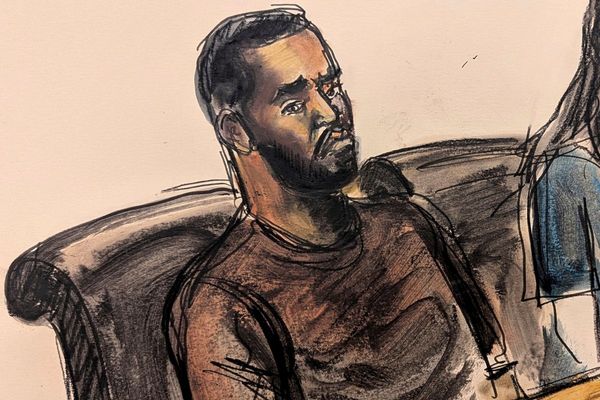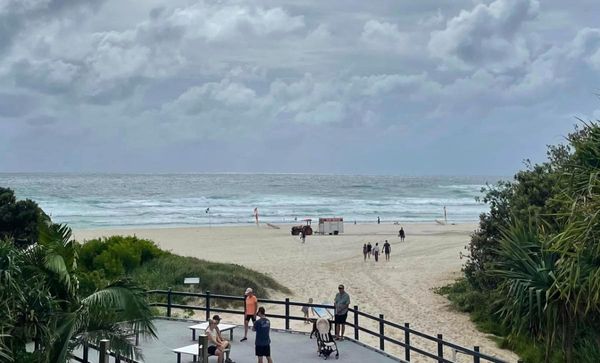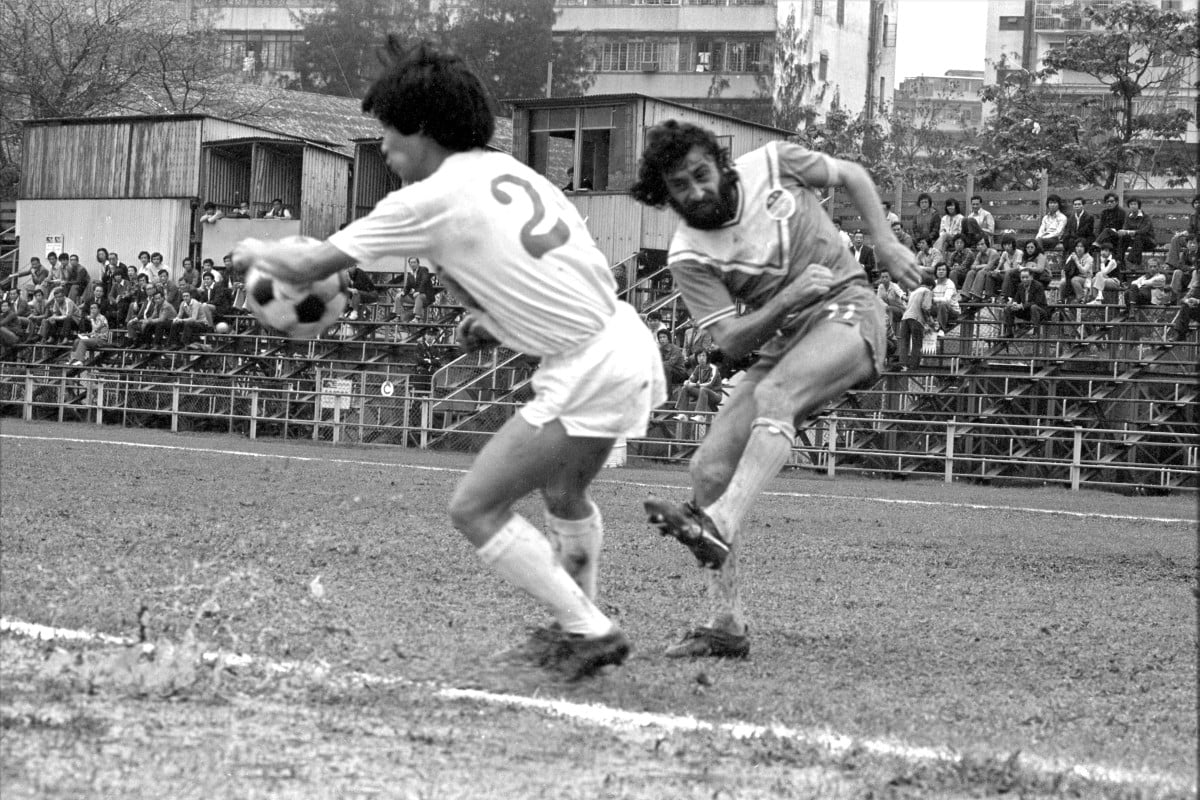
Derek Currie had just scored an equaliser and set up the winning goal as a League XI shocked favoured Swedish visitors Djurgaardens 3-2 in November 1970 in front of 28,000 fans at the Hong Kong Stadium.
Exiting the stadium, Currie felt his feet leave the ground. Around 100 fans had gathered, a few of them lifting their hero and carrying him to the bottom of Caroline Hill Road, shouting “Ye So!”, before they put him down near the Lee Gardens Hotel.
The next day’s newspaper headline read: “Jesus saves Hong Kong”. “And the name stuck since then,” said Currie, whose Biblical long hair and beard, and star status on and off the field has made him a true icon of Hong Kong football.
Currie is writing his memoirs of an era when the game was an intrinsic part of Hong Kong life, when crowds overflowed at the 28,000-capacity Hong Kong Stadium and the territory pioneered the concept of domestic professional football in Asia.
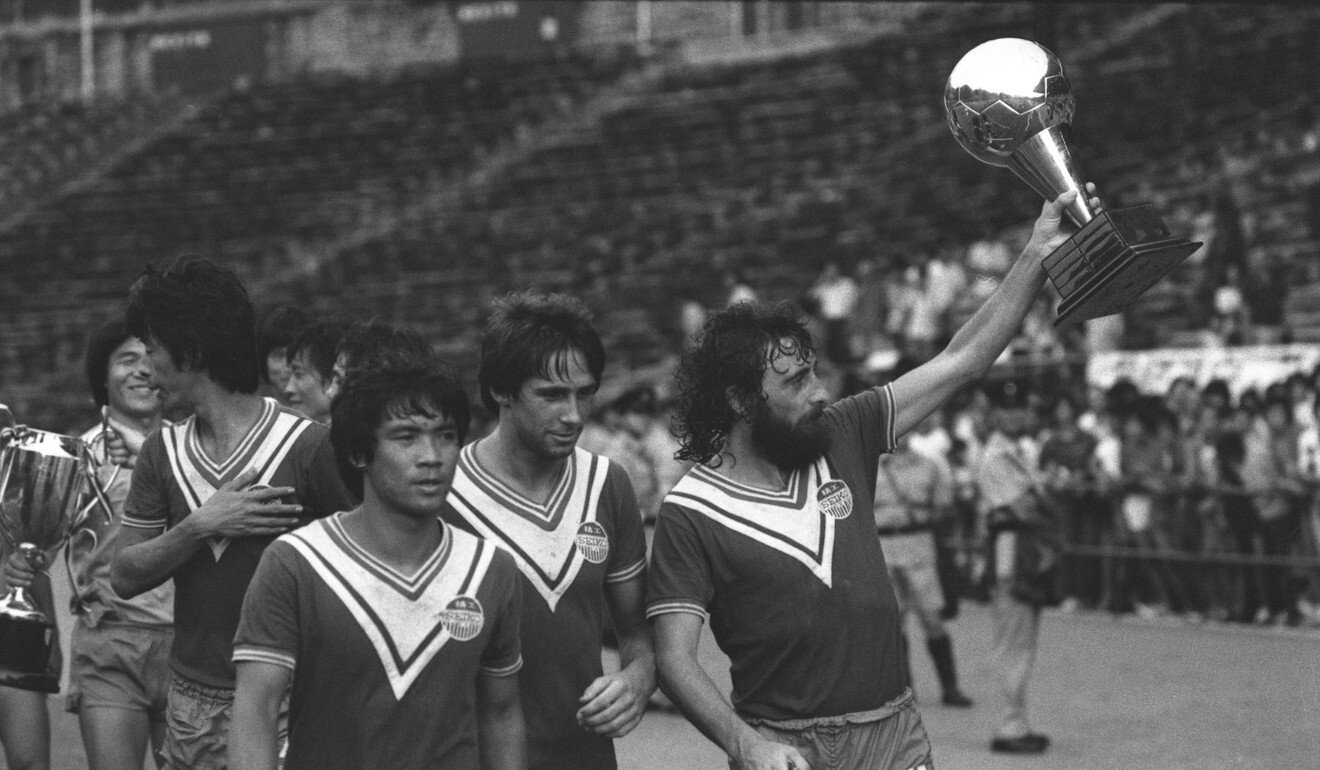
For Currie, though, the anecdotes go beyond the field. As the soccer-playing “Jesus” and then high-profile PR guru for Carlsberg, Currie was a star and often reluctant socialite who was on first-name terms with celebrities from the sports and entertainment world.
Currie had been in Hong Kong seven weeks before the Djurgaarden game. With Pope Paul VI due to bless the gathering at the Hong Kong Stadium, one local newspaper cartoonist decided to have some fun.
The cartoon showed the Pope addressing his cardinals with the likeness of Currie hiding between cassocks. The caption had the Pope asking: “Now gentleman, what’s all this about Jesus playing football at the Hong Kong Stadium?”
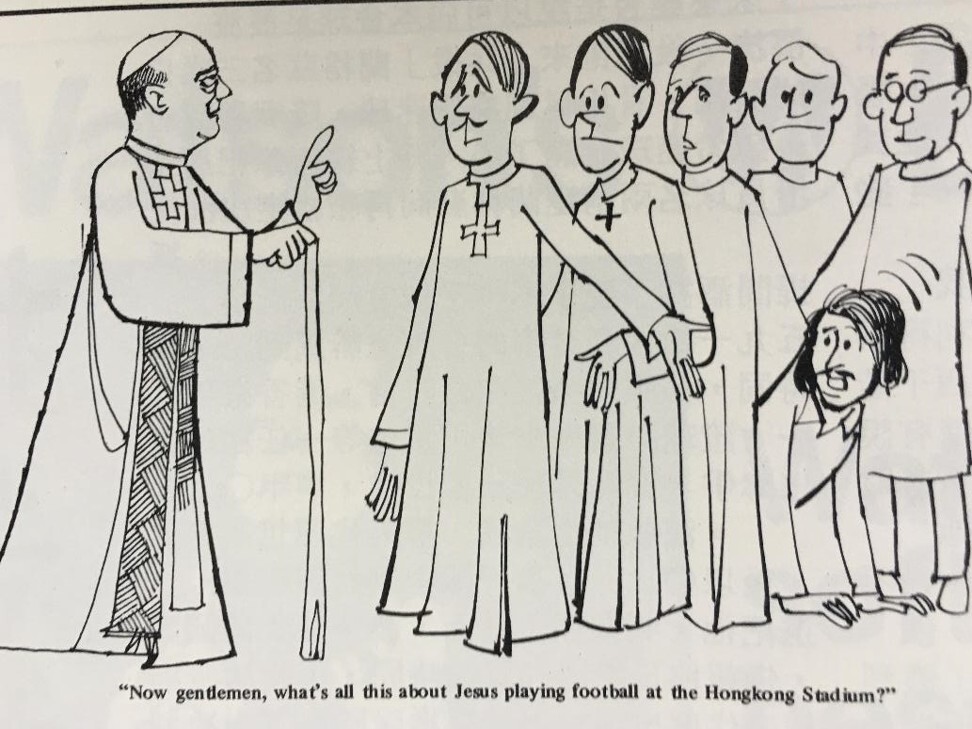
After the Hong Kong Football Association launched a new era of professionalism two years earlier, Currie, fellow Scotsmen Walter Gerrard and Jackie Trainer became the first European pros to sign up, joining Ian Petrie’s ambitious Rangers side in a pioneering move that provided the spark for massive cultural change in football leagues across Asia.
Currie, too, was undergoing significant cultural change in his own life. Six months previously, he completed a five-year apprenticeship as a compositor for a printing house in Glasgow, heeding advice from his father to learn a skill in case an injury curtailed his football career.
As it turned out, he has never typeset a letter since. Instead, the ink of the printed word, in Hong Kong at least, was dedicated to his achievements. He was also swiftly embraced by the city’s social community, once attempting a charity Star Ferry world record by trying to cross the harbour as many times as he could within 20 hours on behalf of the Association of Round Tables.
Having agreed to join Rangers on the promise of playing against Pele, the craggy Scotsman ended up facing the Brazilian legend several times while rubbing shoulders with the likes of Rod Stewart, Rolling Stones guitarist Ron Wood, Manchester United superstar George Best, boxer Marvin “Marvelous” Hagler and seminal singer Stevie Wonder, among others.
Currie, now retired in Bangkok, Thailand, started his Hong Kong journey by answering an ad in the local Glasgow newspapers. He turned up at the trial match, supervised by Petrie, not expecting it go much further.
“I played all right and scored a goal with my head,” said Currie. “Later, Ian called me over and said they would like me to play for Rangers in Hong Kong.
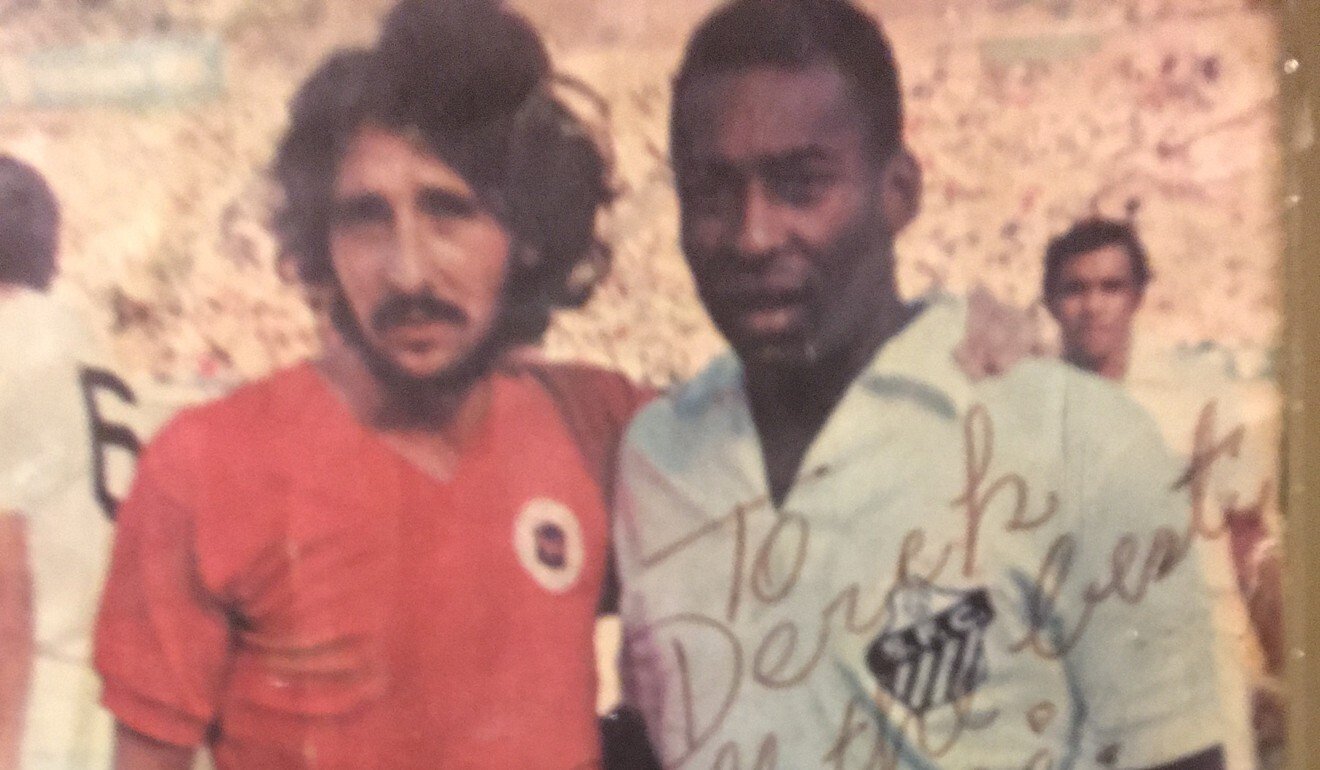
“I wasn’t sure how to react, I didn’t really think I was going to go to Hong Kong, it was more of just a game for me, maybe other teams would see me. Then Ian said, ‘you know, we think you’ll be good enough to get into the Hong Kong League XI who is playing Brazil’s Santos in a few months. And you’ll get a chance to play against Pele’.
“Once he said that, I was like ‘when can I sign?’,” said Currie. “The World Cup in Mexico had just finished and it was, in my view, the best Brazil side ever and Pele was just a huge name. I could not pass up that opportunity.”
Currie would play against Pele on five occasions, including once during a three-month stint in the North American Soccer League for San Antonio Thunder.
His first encounters were during Santos’ tour of Hong Kong in the winter of 1970, when, as Petrie predicted, he made a good enough impression to be chosen for the League XI.
He clearly impressed Pele as well. Two years later, Santos returned to Hong Kong and Currie found himself a few steps behind Pele on the Lee Gardens escalator. “He turned around and saw me and said, ‘Hey, the number 11, how are you?’, referring to my jersey number from his previous visit. I was thinking ‘that’ll do it for me’, even if he didn’t remember my name.”
Among his many bizarre off-field adventures in Hong Kong was when he tried to raise money for charity with multiple Star Ferry crossings.
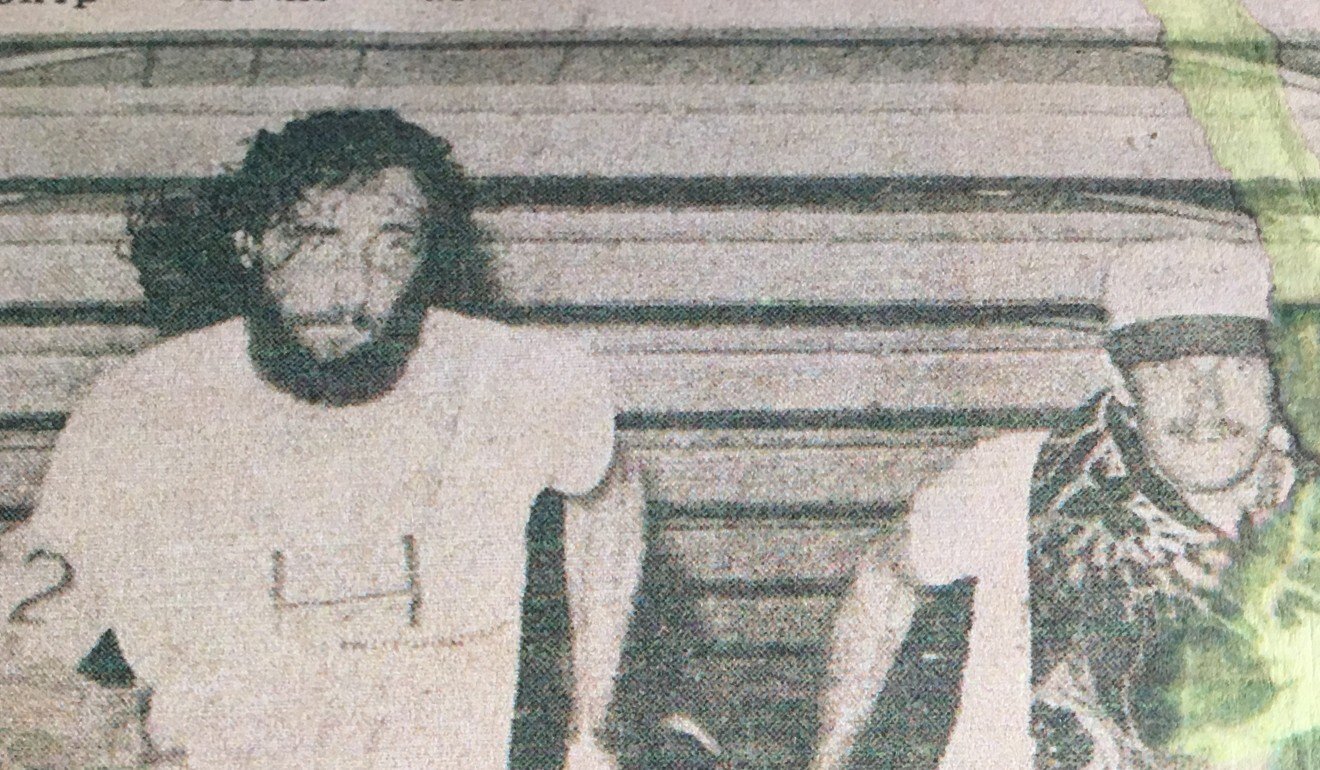
His long-time friend and hockey player Alan Railton was assisting him as Currie embarked on his 20-hour adventure. He needed to use the ferry as any other paying customer, queuing for tickets, either upper deck or lower, and as soon as he reached one side, he would loop around and line up for the next ferry to the other side.
He had to sign a form after every journey but his 116 crossings were never recognised by the Guinness Book of World Records because of smudged signatures, much to the disappointment of key organiser, the former Hong Kong Olympic official and hockey chief Con Conway.
“It was raining and about five of the signatures were smudged so they refused to recognise it,” said Currie, who along with other ferry riders raised about HK$100,000.
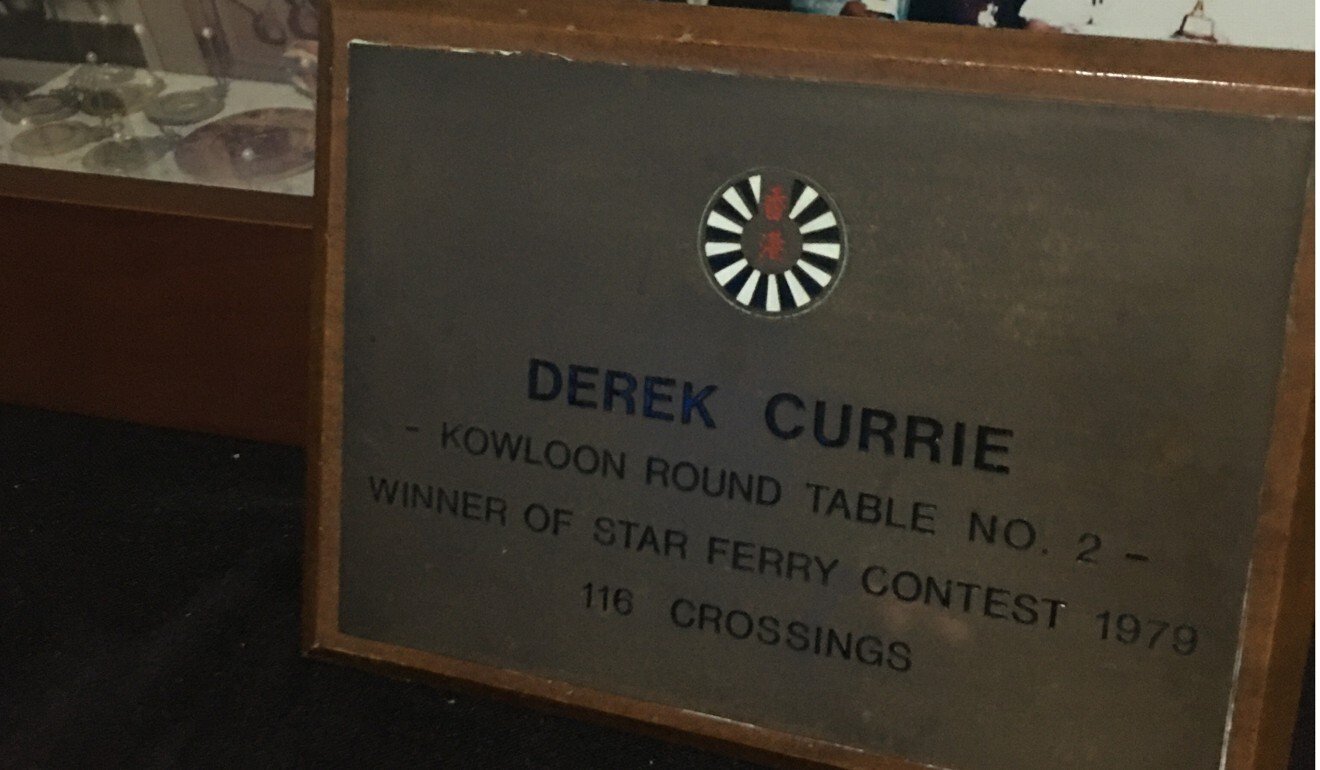
“But I was proud to have done 116, I wasn’t after any record, and would not have done it if I hadn’t had Alan as my sort of bag man. He would queue up and pay for the ferries so I could get on quicker.”
Currie always had a love for horse racing, having been the owner of two thoroughbreds – Casey’s Drum and Glasgow Kiss – and is a former multiple champion tipster for local newspapers.
One of his hottest tips, though, was not for a horse, but a jockey. Currie remembers leaning over the balcony at Happy Valley racecourse many years ago and talking to a 14-year-old rider by the name of Tony Cruz, whose father, Johnny M da Cruz was already a successful jockey.
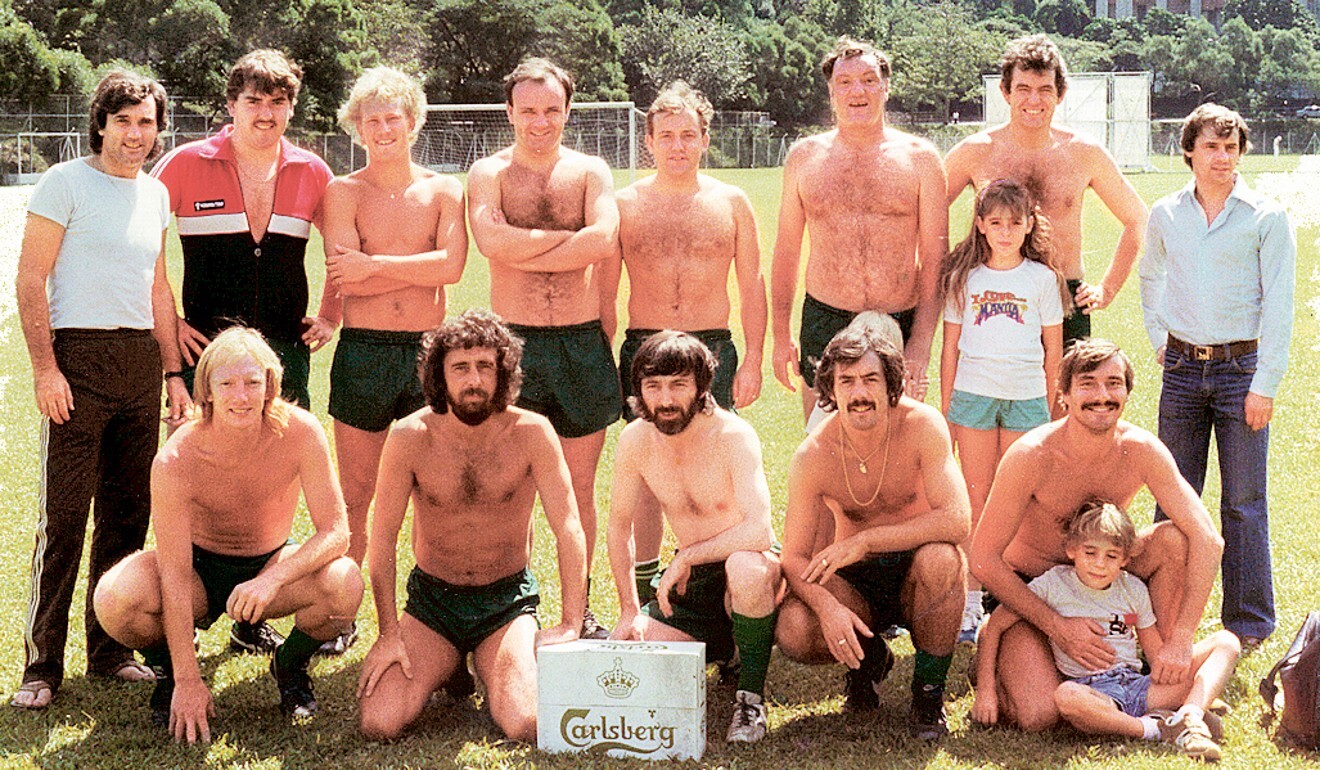
“I told him, ‘Listen son, one day you’ll be out riding and you’ll be better than your father’,” said Currie.
Cruz, now a trainer, would go on to enjoy a glorious career in the saddle as one of the best sports stars Hong Kong has produced.
Football also allowed Currie to meet “budding stars” of the entertainment industry. He once helped to organise an impromptu kick-about with football-mad Stewart, Wood and a handful of other players at Happy Valley in 1974.
At the time, Stewart and Wood were part of the Faces rock group before the former went on to a hugely successful solo career and Wood became part of legendary British band Rolling Stones in 1975.
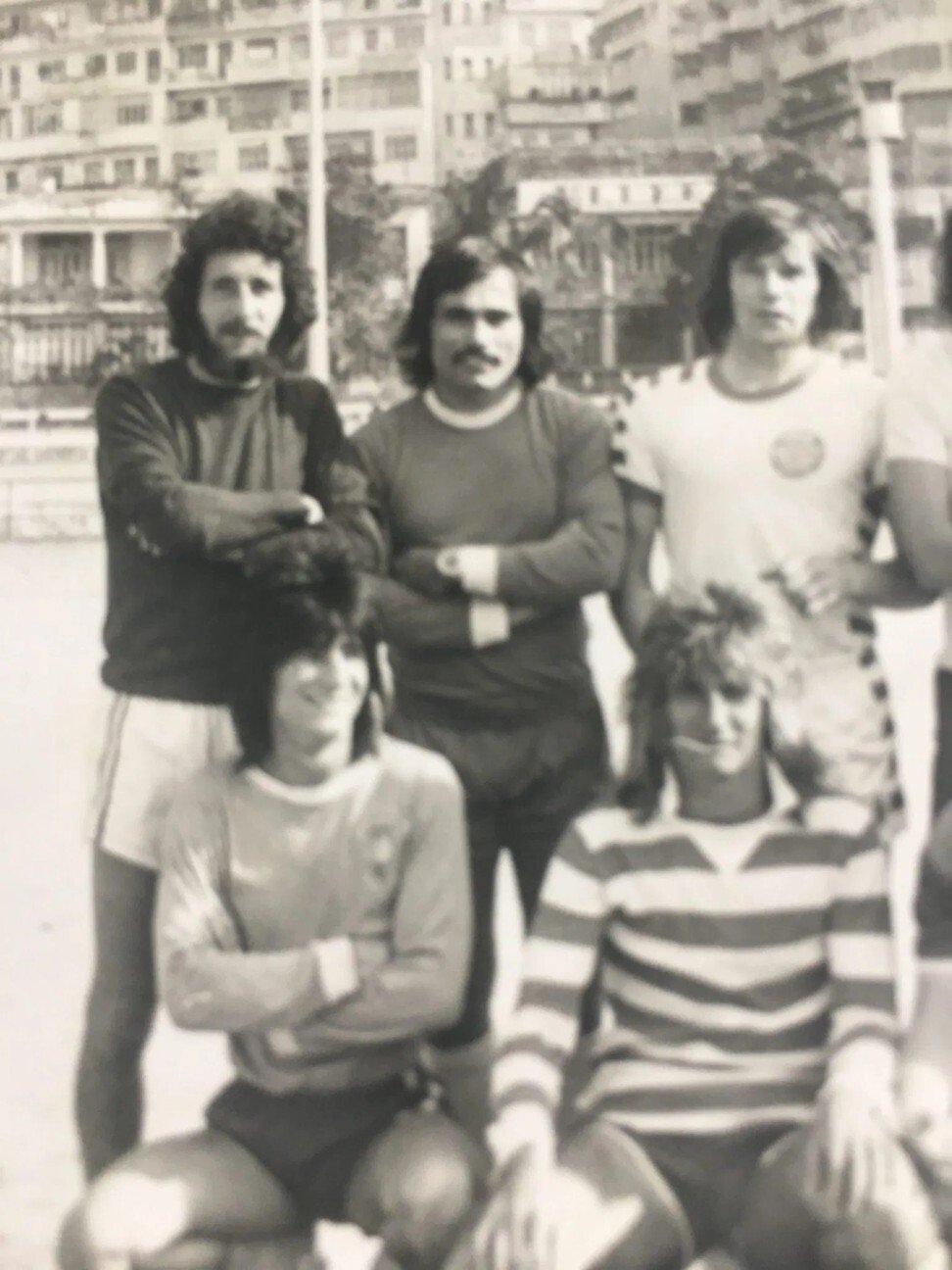
Stewart would later give Currie his Celtic jersey, which he said once belonged to Lisbon Lions’ European Cup-winning winger Jimmy Johnstone. “It was the first time I wore a Celtic shirt, as Rod, being a mad Celtic fan covered me with it,” Currie said.
He also befriended former world middleweight champion Marvin Hagler, whose 1987 bout against Sugar Ray Leonard is the stuff of boxing legend.
The pair were on the Star Ferry heading to Kowloon when Hagler spotted the Hong Kong Hotel. He knew that his good friend Stevie Wonder was staying there, so he dragged Currie along.
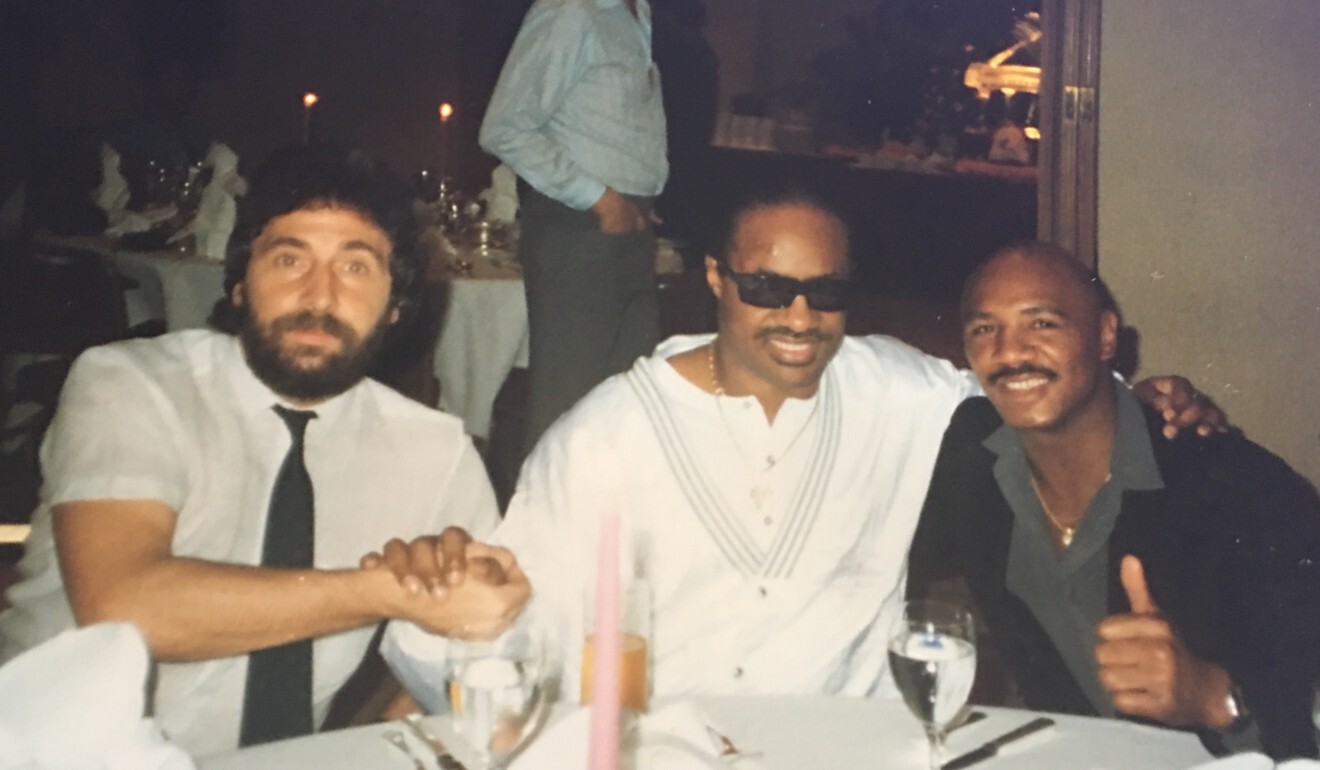
They ended up attending a birthday party for twin sisters who were Wonder’s backing singers. “I felt a bit out of place at first, but after a while, I thought, what the hell. And when they started singing I just called to say I love you, I joined with Stevie and Marvin, who were sitting either side of me.”
Currie said he had yet to determine a completion date for his memoirs but with so many stories from on and off the field to tell, it may take him a while.
“This lockdown has been a wake-up call for me to write my memoirs as who knows what lurks around the corner, as Covid-19 has shown us,” said Currie.
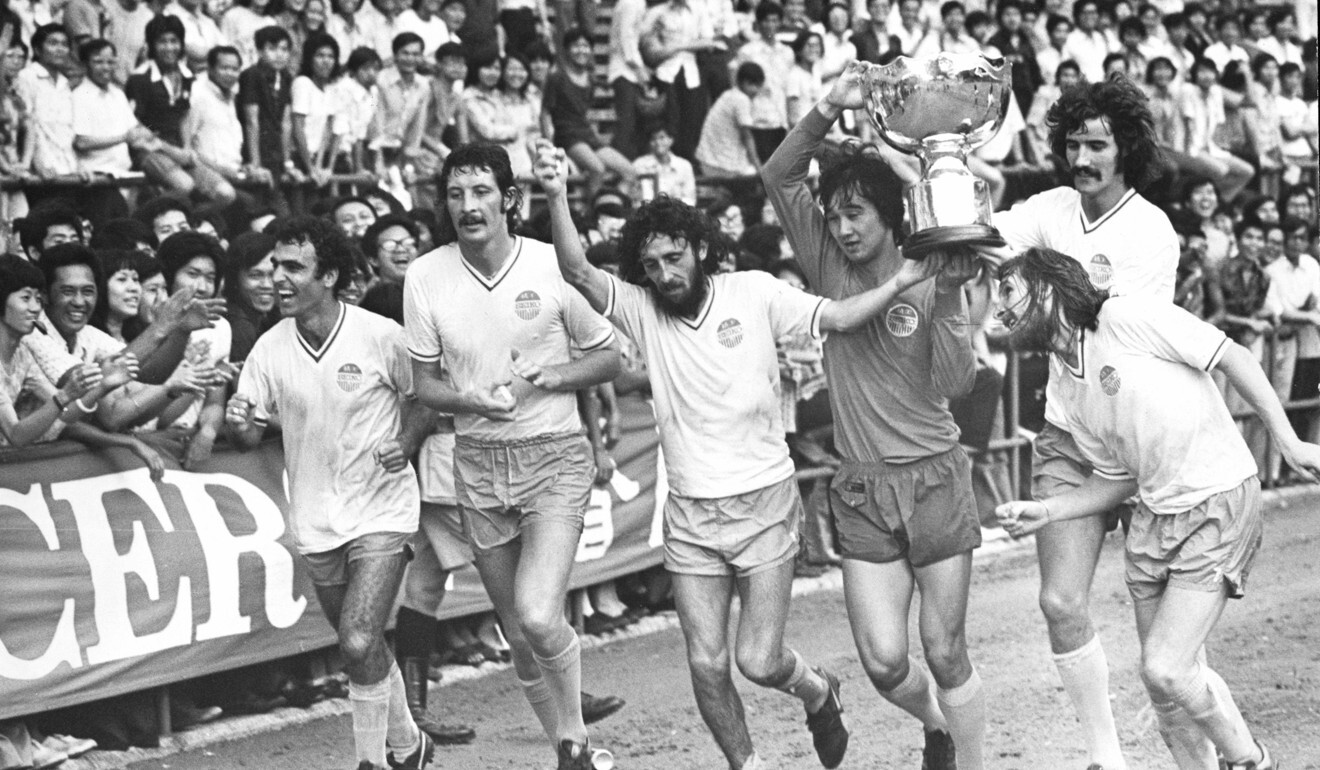
“It’s a remembrance of professional football when it kicked off for real in 1970 and also a tribute to fellow Scot, Walter Gerrard, who sadly passed away, and who was the third member of the trio along with Jackie Trainer and myself, who landed in Hong Kong 50 years ago.
“A story of the many characters and life and times of that period, before Hong Kong entered the 21st century. Hopefully, I can bring that back to life.”
